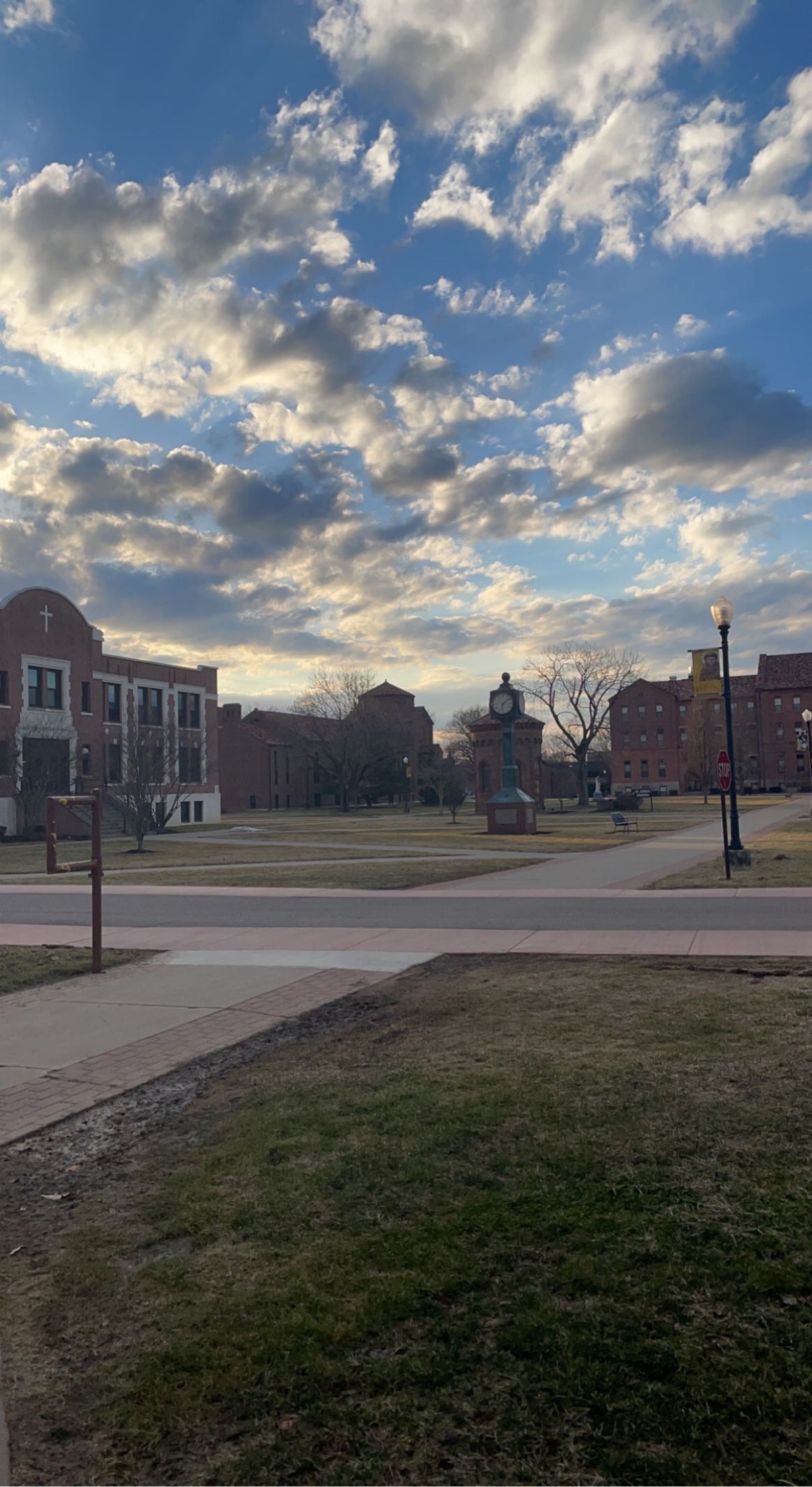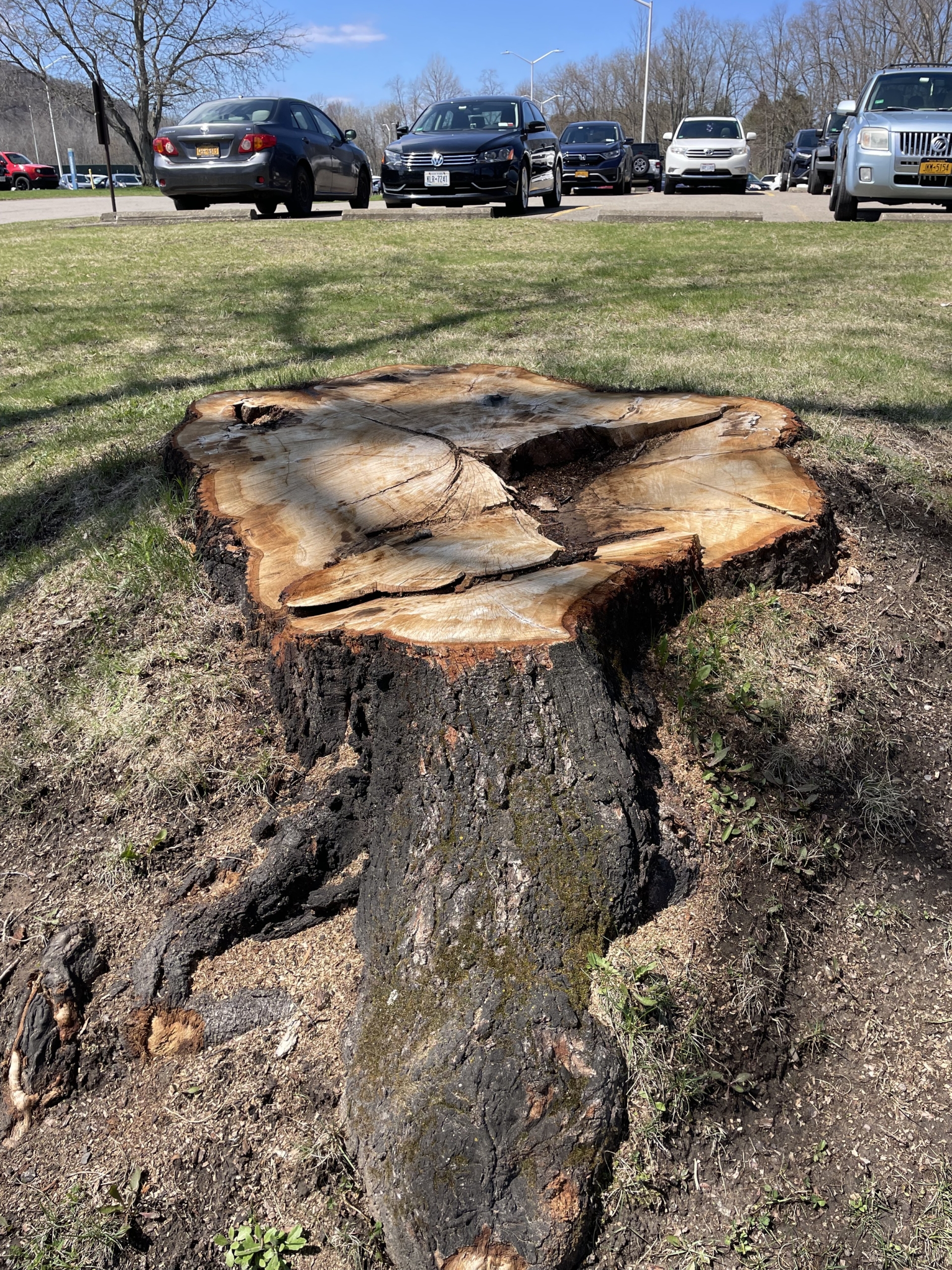BY CASSIDEY KAVATHAS, MANAGING EDITOR
Sydney Fox, who began her first year of college at St. Bonaventure University in the fall 2020 semester, sat in her freshman dorm lounge with a group of friends. The group met to watch a Buffalo Bills game together. Resident assistants interrupted the group to inform them that someone would need to leave the lounge due to COVID-19 restrictions.
Because of social distancing and COVID-19 restrictions, the residence assistant randomly picked Fox to leave. Fox spent football Sunday alone in her dorm room, she said.
“We were all just trying to watch football together,” said Fox. “I wanted to be with my friends.”
Bonaventure’s class of 2024 entered its first year of higher education when the university had regulations on student life due to the coronavirus pandemic. Students could not enter each other’s residence halls. Public spaces mandated social distancing, and the university required face masks.
Fox said those regulations helped her decide to transfer.[9]
“I didn’t have a normal college experience until I transferred,” said Fox, who transferred to the University of South Florida. “The COVID-19 regulations were a bit extreme.” [10]
Fox’s peers at Bonaventure transferred at a higher rate than the university had seen since 2006. The university had a 73% retention rate for the cohort that entered in fall 2020. For the previous cohort year, the university had an 86% retention rate.
Ann Lehman, associate vice president for grants and research, defined retention rate as the number of students who began in the same semester with the same cohort status and returned each year. University officials attributed the lower retention rate to COVID-19 regulations and advising problems. The university started a pilot program in one of its schools to better advise students.
Until 2020, the university’s retention rate had not fallen below 80% since 2007, according to David Hilmey, acting provost and vice president for academic affairs. Around then, the university created a retention committee to examine reasons students left the university, Hilmey said.
Once the university’s retention rate rose above 80%, the committee became inactive. As a result of the 73% retention rate, the university reactivated its committee, Hilmey said.
Hilmey said the committee considers various reasons students have left Bonaventure, instead of focusing only on COVID-19.
“We said, ‘Let’s look at COVID,” said Hilmey. “‘Let’s also look at some of the more longitudinal issues like advising. What is going on over the course of 10 years that we haven’t addressed in our first attempt to look at retention as an issue.’”
The Student Government Association appointed one student — Jacob Palmer, a sophomore accounting major — to the committee.
Palmer said the retention committee studied surveys given to students leaving the university. Members found even though COVID-19 played a factor in students’ decisions to leave, advising also affected their decisions.
“Besides COVID, the number one reason students transferred was poor advisement,” said Palmer. “Advisers were sometimes not as helpful as they could be.”
Meghan Hall, Student Government Association executive board president, said she heard student concerns about advising.
“I know that at least a dozen students in our senate have noted an issue with advising, for themselves or for friends. With a senate of 50, that’s a large enough proportion to worry about,” Hall said.
Hilmey said students draw opinions on advising from more then their academic adviser.
“What we started to recognize is that students are getting advising from many different places,” said Hilmey. “We often think about advisers as being an academic faculty member, and that’s the person who you get your advice from — and it can work, but sometimes it’s not working.”
This semester, the university launched a pilot program for undeclared majors in its School of Arts and Sciences. Megan Walsh, acting dean of the school, worked with Hilmey and Chris Brown, executive director of the Student Success Center, to create the program.
The program will place undeclared majors with two advisers — a faculty adviser and an adviser from either the Student Success Center or the Career and Professional Readiness Center.
Brown said he believes the addition of the second adviser can help students succeed.
“I think the mentorship that comes from a faculty member in an advising role is crucial,” said Brown. “I don’t think that’s something that a professional or staff adviser can do, but they can bring something to the table.”
Walsh said she believes this program could increase university retention rate by creating a sense of community for students who struggle to feel welcome. According to Walsh, faculty and staff can aid that community.
In Fox’s case, that community could have helped, she said. Fox said without a clear sense of community, she did not want to stay at Bonaventure.
“I had connections with a few people but not enough to make me want to stay,” said Fox.
kavathcj20@bonaventure.edu




